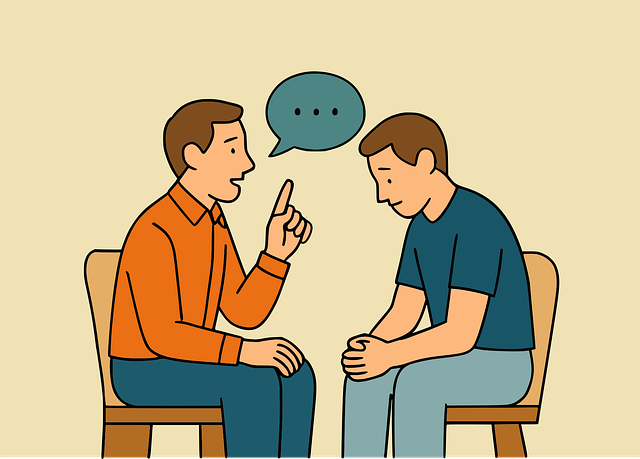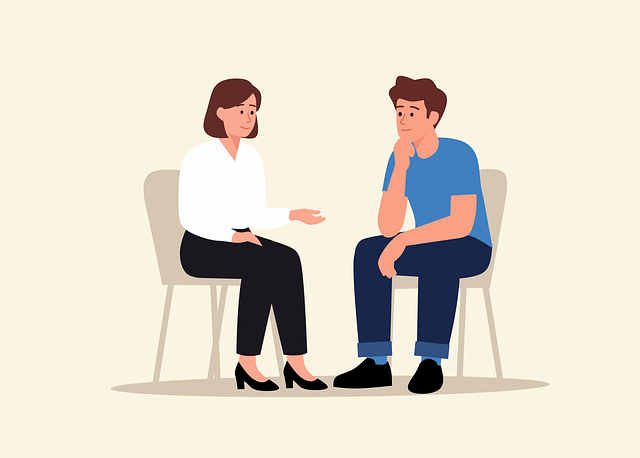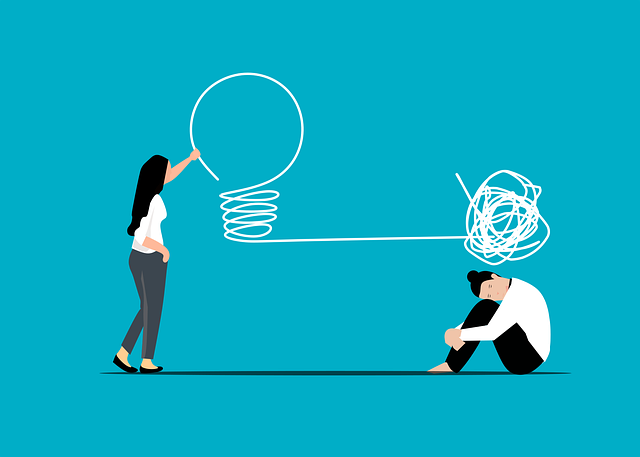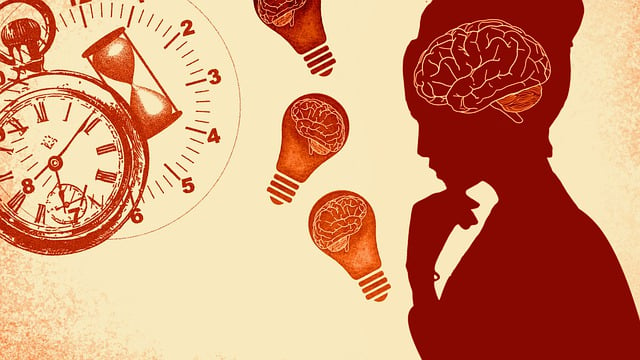Couples counseling is a specialized psychotherapy designed to address intimate partnership issues. It provides a safe space for communication, conflict resolution, and emotional intimacy improvement. Married couples facing challenges like communication breakdown, financial disagreements, or infidelity can benefit from this process. The right therapist, realistic expectations, active listening, and continuous effort are vital for successful therapy. By fostering open dialogue, understanding, and respect, couples counseling strengthens marital foundations, ultimately leading to happier, healthier relationships.
“Strengthen your bond and revive your love story through couples counseling. This transformative process offers a dedicated space for married couples to navigate challenges, improve communication, and rediscover intimacy. In this comprehensive guide, we explore the intricacies of couples counseling, addressing common marital issues and highlighting its numerous benefits. From choosing the right therapist to post-therapy maintenance, learn practical strategies to enhance your relationship. Unlock the power of therapy and embrace a healthier, happier marriage.”
Understanding Couples Counseling: An Overview

Couples counseling, also known as marriage therapy or relationship counseling, is a form of psychotherapy specifically tailored to address issues within an intimate partnership. It offers a safe and supportive environment for married couples to explore their feelings, improve communication, and work through conflicts. The process involves a trained mental health professional who guides the couple through various techniques and strategies to enhance their connection and resolve disagreements.
During counseling sessions, partners learn to actively listen to each other, gain insights into their individual and shared behaviors, and develop new ways of interacting. This form of therapy can help couples improve their conflict resolution skills, deepen emotional intimacy, and strengthen the overall foundation of their relationship. By focusing on both individuals’ needs and the dynamics between them, couples counseling provides a path towards healthier, happier, and more fulfilling marriages.
Common Issues in Marital Relationships

Many married couples face various challenges that can strain their relationships over time. Common issues include communication breakdown, where partners struggle to express their needs and listen to each other effectively. Financial disagreements are another frequent hurdle, often leading to tension and conflict. Infidelity, whether emotional or physical, can severely damage trust and cause deep pain. Additionally, differences in life goals, such as career aspirations or desires for parenthood, may create distance between partners.
Stress from work, family obligations, or external factors can contribute to marital problems, making it hard for couples to connect on a deeper level. Lack of quality time spent together and the wear and tear of everyday responsibilities can also lead to feelings of neglect and disconnection. Couples counseling plays a vital role in addressing these issues by providing a safe space for open dialogue, improving communication skills, and helping partners find compromises that strengthen their bond.
Benefits of Seeking Professional Help

Seeking professional help through couples counseling offers numerous benefits that can significantly enhance a marriage. One of the primary advantages is gaining an outside perspective on challenging situations. A trained therapist provides impartial support, helping each partner understand their unique contributions to conflicts. This objectivity allows for deeper self-reflection and promotes open communication.
Couples counseling facilitates effective conflict resolution skills, teaching partners constructive ways to navigate disagreements. It creates a safe space for expressing emotions honestly without fear of judgment. Over time, this process strengthens the emotional connection between spouses, fostering empathy, understanding, and respect. Ultimately, professional help equips couples with tools to build resilience, improve intimacy, and cultivate a happier, more fulfilling marital relationship.
Choosing the Right Therapist for Your Couple

Choosing the right therapist is a crucial step in ensuring effective couples counseling. Look for professionals who specialize in relationship therapy and have experience handling issues similar to yours. Check their credentials, qualifications, and whether they belong to relevant professional associations. An ideal therapist should create a safe, non-judgmental space where both partners feel comfortable expressing their thoughts and emotions openly.
Additionally, consider the therapeutic approach they employ. Some therapists use specific techniques like cognitive behavioral therapy (CBT) or interpersonal therapy (IPT), which have proven effective for various relationship challenges. It’s beneficial to discuss these methods and understand how they align with your needs as a couple. The right therapist will guide you through the process, offering valuable insights and tools tailored to your unique situation.
Setting Realistic Expectations

When embarking on couples counseling, setting realistic expectations is a crucial step in the process. Many couples come into therapy with idealized visions of what their relationship should be, often influenced by romantic portrayals in media or societal expectations. However, it’s essential to recognize that therapy isn’t about transforming one’s partner or achieving an unattainable ideal; instead, it focuses on fostering communication, understanding, and growth within the existing dynamic.
In terms of couples counseling, realistic expectations mean acknowledging that change takes time and effort from both partners. It involves accepting that relationships are complex and unique, with their own history and challenges. By setting achievable goals and understanding the therapeutic process, couples can navigate the journey of counseling more effectively. This includes being open to learning new skills, having difficult conversations, and facing past issues that may have contributed to current conflicts.
Communication Techniques in Therapy Sessions

In couples counseling, communication techniques are a cornerstone of effective therapy. Therapists often encourage active listening, where each partner takes turns speaking while the other focuses on understanding and validating their feelings. This helps to build empathy and reduce defensiveness, fostering an environment conducive to open dialogue. By teaching couples specific communication skills, such as using “I” statements instead of accusatory language, therapists enable partners to express themselves more constructively.
Additionally, therapy sessions may involve role-playing exercises designed to mimic real-life interactions. This allows couples to practice healthier ways of communicating under the guidance of a professional. Through these techniques, they can learn to navigate conflicts more effectively, enhance their emotional connection, and strengthen the bond that defines their partnership.
Strategies to Strengthen Bonding and Intimacy

In couples counseling, one of the primary goals is to strengthen the bonding and intimacy between partners. Therapists often recommend active listening as a strategy to foster deeper connections. This involves giving your full attention to your partner, reflecting their feelings, and validating their experiences—a practice that can significantly enhance communication and understanding. Additionally, setting aside dedicated time for each other, whether it’s through regular date nights or shared hobbies, is crucial in reigniting intimacy.
Another effective approach is to incorporate affection and physical touch into daily interactions. This could be as simple as holding hands, hugging, or engaging in more intimate gestures that remind partners of their love for one another. Couples counseling also emphasizes the importance of resolving conflicts constructively, encouraging open dialogue, and seeking mutual understanding rather than blaming each other. By implementing these strategies, couples can strengthen their bond, improve intimacy, and create a healthier dynamic in their relationship.
Coping with Resistance and Challenges During Counseling

Coping with resistance and challenges is a significant aspect of couples counseling. Many married couples may face initial reluctance or hesitation to engage in therapy, often stemming from fear of confrontation or denial of the issues at hand. Overcoming this resistance is crucial for successful counseling. Therapists must create a safe and non-judgmental environment where both partners feel comfortable expressing their thoughts and emotions openly.
During counseling sessions, various challenges may arise, such as differing opinions, intense emotions, or past traumas. Effective couples counseling involves navigating these obstacles with sensitivity and skill. Therapists help partners learn active listening skills, improve communication, and develop strategies to manage conflicts constructively. By addressing these challenges head-on, couples can build a deeper understanding of each other and work towards resolving their issues in a healthy and supportive manner.
Post-Therapy: Maintaining Healthy Marital Relationships

After completing couples counseling, the work is not always over. Maintaining a healthy marital relationship requires ongoing effort and commitment from both partners. Therapy provides tools and strategies to navigate conflicts, improve communication, and build emotional intimacy—all of which need regular practice to see lasting results.
Regular check-ins with each other and possibly even periodic couples counseling sessions can help reinforce the progress made during therapy. It’s crucial to remember that relationships are dynamic and face new challenges over time. By staying engaged in each other’s lives, actively listening, and openly discussing any concerns or issues, married couples can continue to nurture their bond and keep their relationship thriving.
